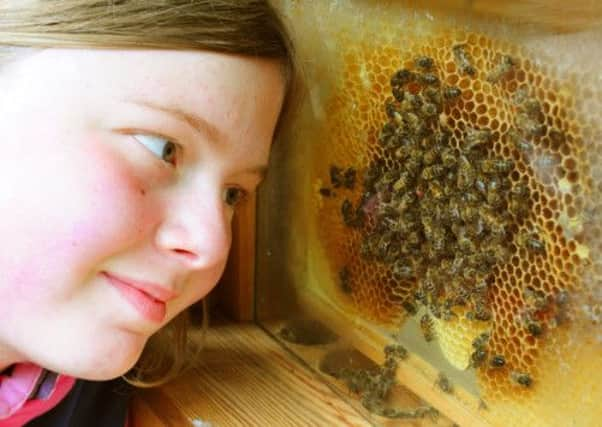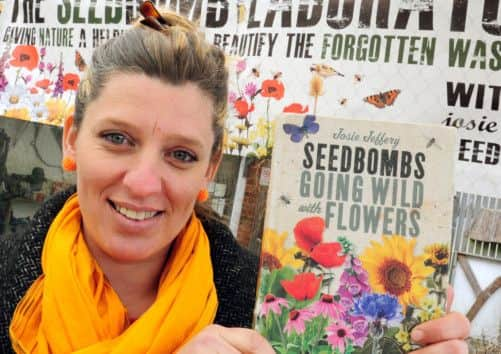How can werevive thehoney bee?


According to Sussex University, hive numbers in Britain are down from one million a century ago to 350,000 today.
Scientific research suggests that neonicotinoids have something to do with the decline and three types of this pesticide are being banned for two years by the European Union from December, 2013.
Advertisement
Hide AdAdvertisement
Hide AdJonathan Tate, who runs South Downs Nurseries in Hassocks, the venue for a bee festival over the Bank Holiday weekend, said: “Neonicotinoids are a broad class of insecticides, containing a number of different active ingredients which are used for the control of sucking insects such as aphid, whitefly, scale insects, lily, beetle, spider mites, mealybug, thrip, leaf hopper and vine weevil, primarily in agriculture.


“We have been following the debate closely and decided to stop purchasing neonicotinoids for resale some time ago, and now offer alternative products for pest control.”
Juliet Merrifield from local transition group for Hassocks, Hurstpierpoint and Ditchling (HKD Transition), helped to organise the bee festival to highlight the bee crisis.
“Bees are not an optional extra,” Juliet said. “Many people may be surprised that starvation is one of the biggest problems - although we’re surrounded by countryside here there are not enough flowering plants to feed our bees.
Advertisement
Hide AdAdvertisement
Hide Ad“If everyone with a garden planted some bee-friendly plants we could make sure that our local bees have enough to eat.”
Bee friendly plants include typical cottage garden varieties such as bellflowers, foxgloves and cornflowers.
Francis Ratnieks, a Professor of Apiculture at Sussex University, heads a research team looking at honey bee breeding and disease management.
The professor and his colleague, Norman Carreck, believe the reasons for declining bee numbers are wide ranging and complex.
Advertisement
Hide AdAdvertisement
Hide AdAlthough neonicotinoids have been banned in France, colony losses have continued.
“It is unlikely that these chemicals themselves are causing colony collapse,” said the professor.
“Rather than killing bees outright, pesticides might be working against honey bees in subtler ways, by making them more susceptible to disease.
“Herbicides don’t directly kill honey bees, but they are part of modern intensive agriculture which has resulted in reduced numbers of flowers in the countryside.
“Bees get their food - pollen and nectar - from flowers.”
Advertisement
Hide AdAdvertisement
Hide AdResearch at Sussex University has shown that a mite called Varroa destructor, a parasite originally confined to the Asian honey bee, has colonised our honey bee and the incidence of viral infections in honey bees has increased.
Poor weather conditions have also had an impact on foraging.
Professor Ratnieks says: “We know we are dealing with a complex puzzle and that there is no single or novel cause and that the situation is not the same in every country. Comprehensive collaboration would help to fit the pieces of this complicated jigsaw together.”